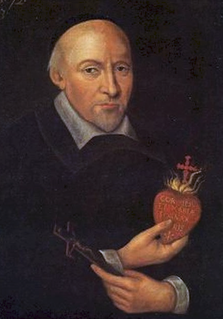A Quote by Francois de La Rochefoucauld
We should wish for few things with eagerness, if we perfectly knew the nature of that which was the object of our desire.
Related Quotes
The desire for total happiness and for ultimate freedom lies dormant in everyone. It is in the form of a seed. It is like a seed that contains a tree within it. In the same way, the fulfillment of man's ultimate desire is hidden in his very nature. In its perfectly developed state, it is our nature to be happy, to be free. Our real nature is the only thing that is true, and only perfecting it can bring complete satisfaction.
We see that God has implanted in all things a natural desire to exist with the fullest measure of existence that is compatible with their particular nature. To this end they are endowed with suitable faculties and activities; and by means of these there is in them a discernment that is natural and in keeping with the purpose of their knowledge, which ensures their natural inclination serving its purpose and being able to reach its fulfilment in that object towards which it is attracted by the weight of its own nature.
A Russian should rejoice if Poland, the Baltic Provinces, Finland, Armenia, should be separated, freed from Russia; so with an Englishman in regard to Ireland, India and other possessions; and each should help to do this, because the greater the state, the more wrong and cruel is its patriotism, and the greater is the sum of suffering upon which its power is founded. Therefore, if we really wish to be what we profess to be, we must not only cease our present desire for the growth of the state, but we must desire its decrease, its weakening, and help this forward with all our might.
Nothing is more human than for man to desire naturally things impossible to his nature. It is, indeed, the property of a nature which is not closed up in matter like the nature of physical things, but which is intellectual or infinitized by the spirit. It is the property of a metaphysical nature. Such desires reach for the infinite, because the intellect thirsts for being and being is infinite.
The real essence, the internal qualities, and constitution of even the meanest object, is hid from our view; something there is inevery drop of water, every grain of sand, which it is beyond the power of human understanding to fathom or comprehend. But it is evidentthat we are influenced by false principles to that degree as to mistrust our senses, and think we know nothing of those things which we perfectly comprehend.
































